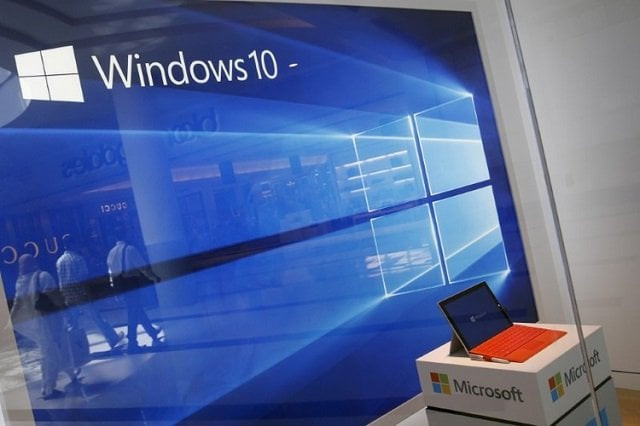Brazil prosecutors say Windows 10 settings violate local laws
The company has faced criticism in the European Union and elsewhere about the installation settings

A display for the Windows 10 operating system is seen in a store window of the Microsoft store at Roosevelt Field in Garden City, New York, US, July 29, 2015.
PHOTO: REUTERS
Microsoft has faced criticism in the European Union and elsewhere about the installation settings of Windows 10 and users’ apparent lack of control over the company’s processing of their data.
Dropbox IPO oversubscribed
Microsoft’s press office in Brazil did not immediately respond to a request for comment.
Federal prosecutors said in a statement that the default setting for Brazilian customers when they installed Windows 10 gave automatic approval for the company to collect user data, such as browsing and search histories, the content of emails and their location.
“The procedure violates innumerous constitutional principals, such as the privacy protection,” the federal prosecutors' office in Sao Paulo said.
It said it filed a civil lawsuit against Microsoft to block Windows 10 “from continuing to collect personal data without users’ express consent.”
Prosecutors asked that the company stop within 15 days its “automatic collection of data” by Windows 10. They are also demanding that Microsoft include alerts for consumers when they install the software so that they better understand “the consequences of authorizing the transfer of data.”
The Brazilian authorities added that their lawsuit was asking that Microsoft be fined 10 million reais ($2.87 million) and 100,000 reais for each day it does not comply with prosecutors’ demands.
It was not clear when a judge may issue a ruling.
Prosecutors said users were able to opt out of allowing Microsoft 10 to sweep up much of their personal information - but that installing it in that manner was “labor intensive and complex” for consumers, and that the software still collected some information.
Microsoft to offer governments local version of Azure cloud service
The statement said Microsoft was trying to increase profits on the back of the data collected by Windows 10, for instance by aiming targeted advertising at specific groups of consumers.
Prosecutors added that several federal government entities, including the judicial system and electoral agencies, used the Microsoft software, creating a risk that legally private information could be made public.


















COMMENTS
Comments are moderated and generally will be posted if they are on-topic and not abusive.
For more information, please see our Comments FAQ